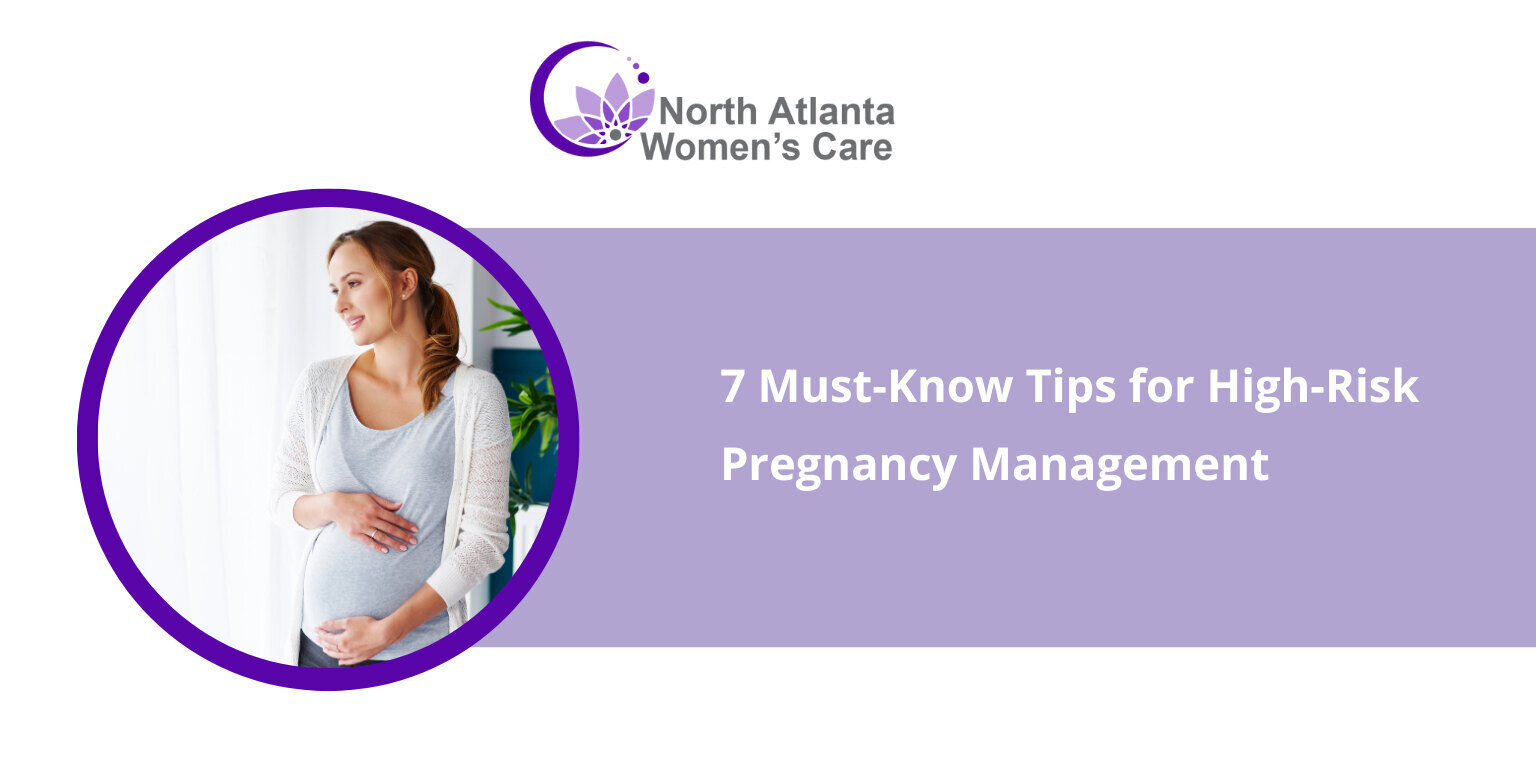7 Must-Know Tips for High-Risk Pregnancy Management

Pregnancy is a beautiful and life-changing experience, but for some women, it can also be high-risk. As per a report, it accounts for about 6 to 8 percent of all pregnancies in the US. This can be due to various factors, such as maternal age, pre-existing medical conditions, or complications that arise during pregnancy.
While a high-risk pregnancy may require extra care and attention, it is essential to remember that with proper management and support, most women can have a healthy pregnancy and baby. In this blog, we will explore essential tips for high-risk pregnancy management.
Understanding High-Risk Pregnancy
It is one where the mother or the baby is at an increased risk of complications or health issues. High-risk pregnancy symptoms are due to various factors. The most common ones include the following:
- Pre-existing health conditions: This includes chronic conditions like diabetes, high blood pressure, autoimmune diseases, and more.
- Age: Women over 35 are considered to have a higher risk of pregnancy and can be more susceptible to requiring C-sections.
- Multiple gestations: Carrying twins, triplets, or more babies increases the risk of complications.
- Previous pregnancy complications: A history of miscarriage, premature birth, or other issues can elevate your risk.
Understanding these factors allows expectant mothers to work closely with healthcare providers to develop a tailored care plan, ensuring maternal and fetal health throughout pregnancy. However, following some vital tips can help significantly reduce the risk.
Essential Tips for Managing High-Risk Pregnancy
Pregnancy can be a delicate period for many women. Recognizing the warning signs of high-risk pregnancy, planning for a safe delivery and natal care, and observing essential points can help women stay ahead of the challenges that arrive. Let us discuss these tips below:
1. Stay Informed
Being informed about your condition and the potential risks is vital for managing a high-risk pregnancy. Take the time to understand your specific risk factors and stay up-to-date with the latest information from reliable sources. Keep a notebook handy to jot down questions and concerns that arise during your pregnancy journey.
2. Build a Support System
Surrounding yourself with a strong support system can make a notable difference in managing a high-risk pregnancy. Share your feelings and concerns with family and friends, and don't hesitate to ask for help when needed. Consider joining support groups, either in person or online, to connect with other women who are going through similar experiences. Sharing your journey with others can provide valuable insights, emotional support, and a sense of community.
3. Collaborate with Healthcare Providers
Your healthcare team plays a vital role in managing a high-risk pregnancy. Work closely with your obstetrician, maternal-fetal medicine specialist, and other healthcare providers to create a comprehensive care plan. Attend all scheduled prenatal appointments and be open about any concerns or changes in your health. Discuss delivery options and potential hospital requirements to ensure you and your baby receive the best care possible.
4. Prioritize Self-Care
Maintaining proper nutrition during pregnancy is important. Eat a balanced diet rich in nutrients, stay hydrated, maintain a healthy weight, and engage in light physical activity as your healthcare provider recommends. Get adequate rest and practice stress management techniques like meditation or yoga. Avoid harmful substances like tobacco and alcohol, as they can negatively impact your pregnancy.
5. Listen to Your Body
Pregnancy can be an overwhelming experience, especially when dealing with high-risk factors. Take time to listen to your body and recognize signs of distress or changes in your health. Don't hesitate to contact your healthcare provider if you notice anything unusual or concerning. Remember to rest when needed and prioritize your well-being throughout your pregnancy journey.
6. Address Mental Health Concerns
A high-risk pregnancy can take an emotional toll on both the mother and her loved ones. It is normal to feel anxious, stressed, or overwhelmed at times. One of the things to know about pregnancy is that if these feelings persist or interfere with your daily life, seeking professional help from a mental health provider becomes paramount. Techniques such as cognitive-behavioral therapy (CBT) and mindfulness-based interventions can help manage anxiety and stress.
7. Follow Medical Advice and Treatment Plans
If you have been diagnosed with a specific medical condition or are at risk of developing one, following your healthcare provider's advice and treatment plans is important. Take prescribed medications as directed, monitor your health conditions (e.g., blood sugar and blood pressure), and undergo regular testing and screenings as recommended. Adherence to your treatment plan can help prevent or manage complications and ensure the best possible outcome for you and your baby.
Proactive Care is Vital in a High-Risk Pregnancy
A high-risk pregnancy requires extra care, but it doesn't define your journey to motherhood. By prioritizing your health and fitness, maintaining open communication with your healthcare provider, and building a strong support system, you can have a healthier pregnancy and childbirth experience. Following useful tips for high-risk pregnancy can make this journey easier.
Get Expert and Compassionate Care for High-Risk Pregnancy at North Atlanta Women’s Care
At North Atlanta Women’s Care, we have built an environment of expert and compassionate medical care for every stage of pregnancy. Our experienced healthcare professionals work closely with you and your providers to create a personalized care plan, ensuring the best outcomes for you and your baby. Whether you’re dealing with maternal age concerns, pre-existing conditions, or multiple gestations, we are dedicated to guiding you through every step of your journey. Request an appointment with us to learn more.
Comments are closed

